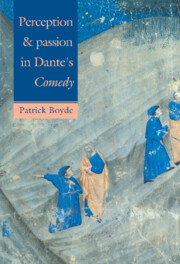Book contents
- Frontmatter
- Contents
- Preface
- PART ONE Coming to terms with Aristotle
- PART TWO The operations of the sensitive soul in man
- PART THREE The operations of the rational soul
- PART FOUR Combined operations
- 11 Fear
- 12 Anger
- 13 Desire
- Notes
- Select bibliography
- Index of Latin terms
- Index of longer quotations
- General index
13 - Desire
Published online by Cambridge University Press: 14 October 2009
- Frontmatter
- Contents
- Preface
- PART ONE Coming to terms with Aristotle
- PART TWO The operations of the sensitive soul in man
- PART THREE The operations of the rational soul
- PART FOUR Combined operations
- 11 Fear
- 12 Anger
- 13 Desire
- Notes
- Select bibliography
- Index of Latin terms
- Index of longer quotations
- General index
Summary
A change in polarity and a restriction in field
Let us begin with a simple fable, inspired jointly by Dante and La Fontaine. Two doves, named Constance and Frances, leave their sweet nest to seek sustenance in different fields. Constance is deterred even from landing by a hideous scarecrow. Frances settles where she sees a third dove feeding placidly. Question: which of the two is in the greater danger? Constance, who is repelled by fear of an apparent malum? Or Frances, who is called by desire for an apparent bonum? Answer and moral of the tale: Frances, because the dove on the ground is a decoy, used to entice her into some hidden nets.
The fable serves to explain the first of the major differences between this chapter and its immediate predecessors. They were structured to culminate with the insights that ‘combined operations’ can be successful, and that even the painful passions can be good for the experiencing subject in the sense that some fear is ‘salutary’ and some wrath is ‘righteous’. The present chapter inverts the emphasis. It is organised to drive home the point that a pleasurable emotion may be harmful, that not all love for the good is itself good, and that co-operation between the higher and lower powers of the soul is not always possible because there are some situations in which the will should simply say ‘no’.
- Type
- Chapter
- Information
- Perception and Passion in Dante's Comedy , pp. 275 - 301Publisher: Cambridge University PressPrint publication year: 1993



